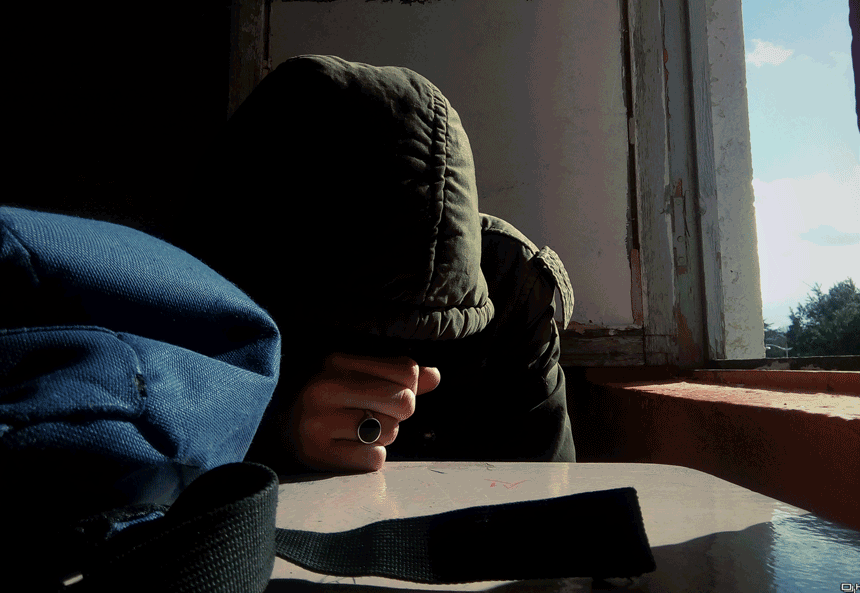Joe Purdy sings a very powerful song entitled “isn’t love”. The singer is singing about all of the ways in which he is so pained, betrayed, and broken in so many different ways by the person he supposedly loves. And then over and over again he repeats, after poetically explaining his anguish, “…and I hope this isn’t love”.
And I feel like I’d be dishonest if I were to say I haven’t been there. I think many of us have. At least if I use the people I work with day in and day out as examples. Too many times do I see (and have I experienced) those who confuse lust with love. Or obsession with love. Or a lack-of-self-confidence-turned-desperation with love.
We find ourselves in unhealthy, unfulfilling relationships because we think we don’t deserve more. We think we have to settle. We think we can never do better. So we settle on patterns that ruin our days, weeks, years, and ultimately, if we don’t have the courage to escape or break free from these patterns that don’t suit us, our lives.
Why, if you touch something that’s hot, do you have a built-in, self-protective response to back away and that lesson is immediately learned? Don’t touch the stove. Don’t touch the stove, it’s hot. Don’t touch the stove, it’s hot, it burns, and it hurts. Maybe even scars. Why are we so quick to respond to physical pain and so quick to implement new ways of navigating in the world to avoid it? But perhaps more importantly, why can’t we apply these same teachings to our emotional selves?
My clients come to me in agony. Often crying week after week, stuck in relationships they can’t seem to get out of. An ambivalence so intense they are digging their own emotional graves knowingly, perhaps intentionally. These relationships are like a rollercoaster; the ups feel great but the downs make them regret the first time they met their partner. And yet they stay. If I lived with someone whom I regretted meeting, I’d like to think I’d know better than to call that “love”. And yet, I’ve done it. And I’ve stayed. But why?
Perhaps it’s because they’ve brainwashed me into thinking I’ll never meet someone quite like them again. And in some twisted way, I’d like to think, “well isn’t that partially the point”? Perhaps I have so little confidence that I fear if I don’t put up with them, I will end up alone; that no one will put up with me. No one will be attracted to me, no one will love me. But is it their fault? Or does it go beyond them, before them? How far back can (or should) we trace our self-devaluation? And whose responsibility is it to teach us how to value ourselves?
I feel like we live in a world where we (women more so than men, but still, we, as humans) are taught to compare ourselves with the impossible, and where lust is confused with love. Where we get such a high off of having found someone, that we stop to care if they’re “the one”. Our world tells us that if we are single, we are somehow lesser of a person, incomplete. That we need to be in a relationship to be valued; that people perceive us as unhappy and ask us about online dating or offer any other suggestion just so we can meet someone, because we must be unhappy being alone.
And yet, after all of the “un-loving love” relationships I’ve been in, I can surely look back and say I’d rather be alone than have my happiness dictated by our cultural expectations and/or an unpredictable ride. Or be someone who devalues me as much as I (must) devalue myself to stay in that situation.
I spend so much time every day talking about what love isn’t, that I often forget to think about what love is. Love is emotional safety. Love is sweatpants and uncovered acne. Having sex with the lights on. Boundaries. Being honest about bodily functions and peeing with the door open. Physical safety. Respect. Empathy if not understanding. A desire to empathize, a desire to understand. Realistic expectations. Having a voice. Being heard. Listening. Being held.
And yet we stay. We stay without safety. We stay without boundaries. We stay without love or even a desire to stay. We stay for culture. We stay for our parents, for pictures and Facebook likes and external validation that we shouldn’t need to begin with.
But not me. And not my clients. Not any longer. I have learned not to stay and my clients are actively working toward love. And it starts from our parents showing us love. And then it continues from within. And it should end how we want it to. Because this is our story. Because the pain and the trauma and the self and partner-defamation? Well, “I hope this isn’t love”.



Leave a Reply